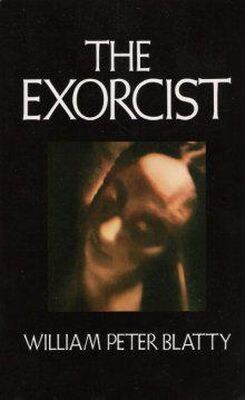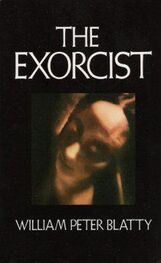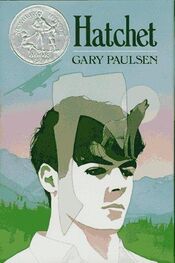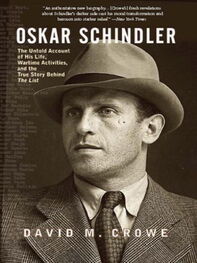THE EXORCIST
William Peter Blatty
To my brothers and sisters, Maurice, Edward and Alyce, and in loving memory of my parents.
'Now when [Jesus] stepped ashore, there met him a certain man who for a long time was possessed by a devil.... Many times it had laid hold of him and he was bound with chains.... but he would break the bonds asunder.... And Jesus asked him, saying, "What is thy name?" And he said Legion....'
--Luke 8: 27-30
James Torello: Jackson was hung up on that meat hook. He was so heavy he bent it. He was on that thing three days before he croaked.
Frank Buccieri (giggling): Jackie, you shoulda seen the guy. Like an elephant, he was, and when Jimmy hit him with that electric prod...
Torello (excitedly): He was floppin' around on that hook, Jackie.
We tossed water on him to give the prod a better charge, and he's screamin'....
--Excerpt from FBI wiretap of Cosa Nostra telephone conversation relating to murder of William Jackson ...
There's no other explanation for some of the things the Communists did. Like the priest who had eight nails driven into his skull.... And there were seven little boys and their teacher. They were praying the Our Father when soldiers came upon them. One soldier whipped out his bayonet and sliced off the teacher's tongue. The other took chopsticks and drove them into the ears of the seven little boys. How do you treat cases like that?
Dr. Tom Dooley
Dachau, Auschwitz, Buchenwald
AUTHOR'S NOTE I Have taken a few liberties with the current geography of Georgetown University, notably with respect to the present location of the Institute of Languages and Linguistics. Moreover, the house on Prospects Street does not exist, nor does the reception room of the Jesuit residence halls as I have described it.
The fragment of prose attributed to Lankester Merrin is not my creation, but is taken from a sermon of John Henry Newman entitled 'The Second Spring'.
ACKNOWLEDGEMENTS
My special thanks to Herbert Tanney, M. D.; Mr. Joseph E. Jeffs, Librarian, Georgetown University; Mr. William Bloom; and Mrs. Ann Harris, my editor at Harper & Row, for their invaluable assistance and generosity in the preparation of this work. I would also like to thank the Rev. Thomas V. Bermingham, S. J., Vice-Provincial for Formation of the New York Province of the Society of Jesus, for suggesting the subject matter of this novel; and Mr. Marc Jaffe of Bantam Books for his singular (and lonely) faith in its eventual worth. To these mentions I would like to add Dr. Bernard M. Wagner of Georgetown University, for teaching me to write, and the Jesuits, for teaching me to think.
PROLOGUE
Northern Iraq
The blaze of sun wrung pops of sweat from the old man's brow, yet he cupped his hands around the glass of hot sweet tea as if to warm them. He could not shake the premonition. It clang to his back like chill wet leaves.
The dig was over. The tell had been sifted, stratum by stratum, its entrails examined, tagged and shipped: the beds and pendants; glyptics; phalli; ground-stone mortars stained with ocher; burnished pots. Nothing exceptional. An Assyrian ivory toilet box. And man. The bones of man. The brittle remnants of cosmic torment that once made him wonder if matter was Lucifer upward-groping back to his God. And yet now he knew better. The fragrance of licorice plant and tamarisk tugged his gaze to poppied hills; to reeded plains; to the ragged, rock-strewn bolt of road that flung itself headlong into dread. Northwest was Mosul; east, Erbil; south was Baghdad and Kirkuk and the fiery furnace of Nebuchadnezzar. He shifted his legs underneath the table in front of the lonely roadside chaykhana and stared at the grass stains on his boots and khaki pants. He sipped at his tea. The dig was over. What was beginning? He dusted the thought like a clay-fresh find but he could not tag it.
Someone wheezed from within the chaykhana: the withered proprietor shuffling toward him, kicking up dust in Russian-made shoes that he wore like slippers, groaning backs pressed under his heels. The dark of his shadow slipped over the table.
"Kaman chay, chawaga?"
The man, in khaki shook his head, staring down at the laceless, crusted shoes caked thick with debris of the pain of living. The stuff of the cosmos, he softly reflected: matter; yet somehow finally spirit. Spirit and the shoes were to him but aspects of a stuff more fundamental, a stuff that was primal and totally other.
The shadow shifted. The Kurd stood waiting like an ancient debt. The old man in khaki looked up into eyes that were damply bleached as if the membrane of an eggshell had been pasted over the irises. Glaucoma. Once he could not have loved this man.
He slipped out his wallet and probed for a coin among its tattered, crumpled tenants: a few dinars; an Iraqi driver's license; a faded plastic calendar card that was twelve years out of date. It bore an inscription on the reverse: WHAT WE GIVE TO THE POOR IS WHAT WE TAKE WITH US WHEN WE DIE. The card had been printed by the Jesuit Missions. He paid for his tea and left a tip of fifty fils on a splintered table the color of sadness.
He walked to his jeep. The gentle, rippling click of key sliding into ignition was crisp in the silence. For a moment he waited, feeling at the stillness. Clustered on the summit of a towering mound, the fractured rooftops of Erbil hovered far in the distance, poised in the clouds like a rubbled, mud-stained benediction. The leaves clutched tighter at the flesh of his back.
Something was waiting.
"Allah ma'ak, chawaga."
Rotted teeth. The Kurd was grinning, waving farewell. The man in khaki groped for a warmth in his pit of his being and came up with a wave and a mustered smile. It dimmed as he looked away. He started the engine, turned in a narrow, eccentric U and headed toward Mosul. The Kurd stood watching, puzzled by a heart- dropping sense of loss as the jeep gathered speed. What was it that was gone? What was it he had felt in the stranger's presence? Something like safety, he remembered; a sense of protection and deep well-being. Now it dwindled in the distance with the fast-moving jeep. He felt strangely alone.
The painstaking inventory was finished by ten after six. The Mosul curator of antiquities, an Arab with sagging cheeks, was carefully penning a final entry into the ledger on his desk. For a moment he paused, looking up at his friend, as he dipped his penpoint into an inkpot. The man in khaki seemed lost in thought. He was standing by a table, hand in his pockets, staring down at some dry, tagged whisper of the past. The curator observed him, curious, unmoving; then returned to the entry, writing in a firm, very small neat script. Then at last he sighed, setting down the pen as he noted the time. The train to Baghdad left at eight. He blotted the page and offered tea.
The man in khaki shook his head, his eyes still fixed upon something on the table. The Arab watched him, vaguely troubled. What was in the air? There was something in the air. He stood up and moved closer; then felt a vague prickling at the base of his neck as his friend at last moved, reaching down for an amulet and cradling it pensively in his hand. It was a green stone head of the demon Pazuzu, personification of the southwest wind. Its dominion was sickness and disease. The head was pierced. The amulet's owner had worn it as a shield.
"Evil against evil," breathed the curator, languidly fanning himself with a French scientific periodical, an olive-oil thumbprint smudged on the cover.
His friend did not move; he did not comment.
"Is something wrong?"
No answer.
"Father?"
The man in khaki still appeared not to hear, absorbed in the amulet, the last of his finds. After a moment he set it down, then lifted a questioning look to the Arab. Had he said something?
Читать дальше






